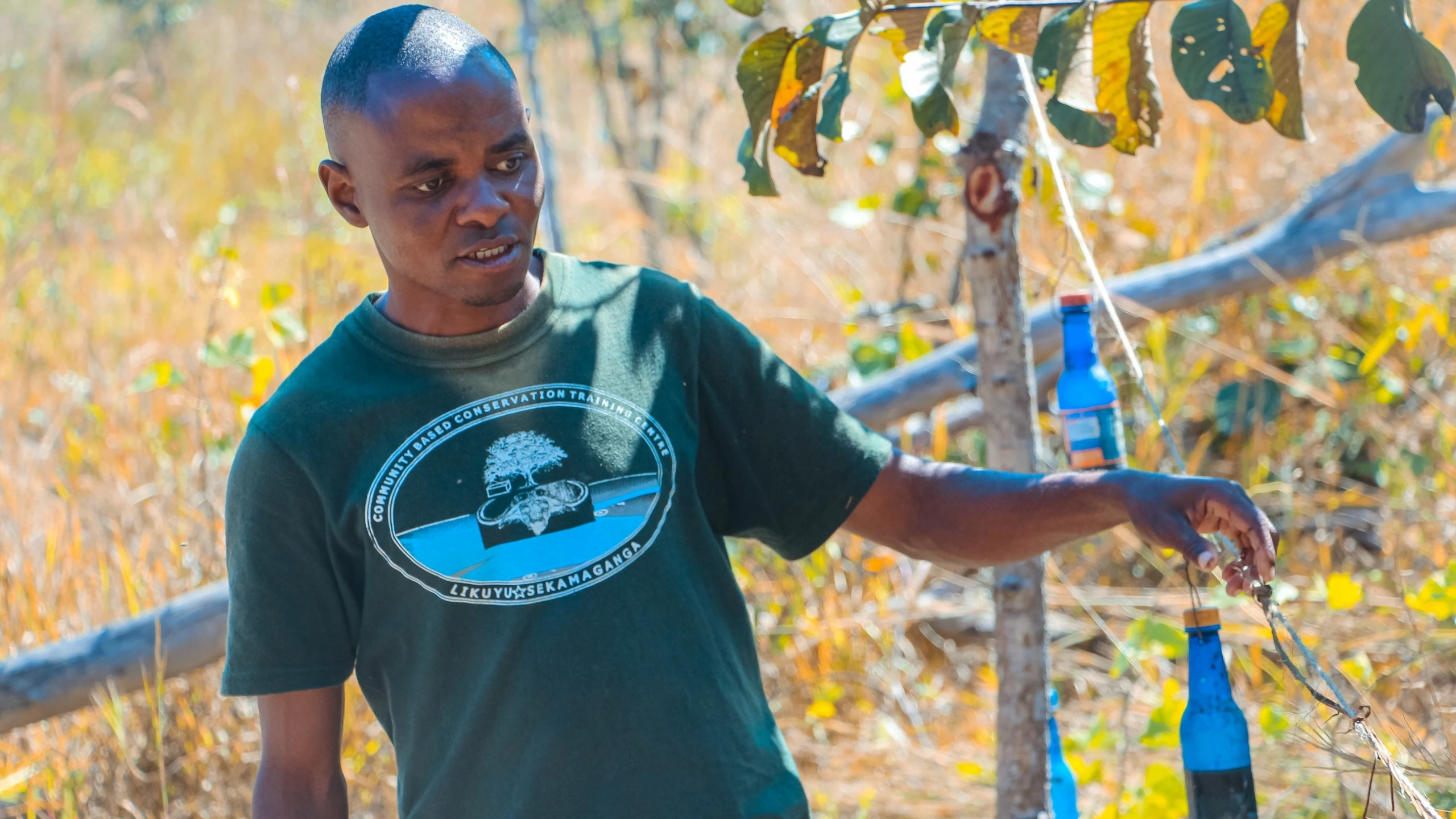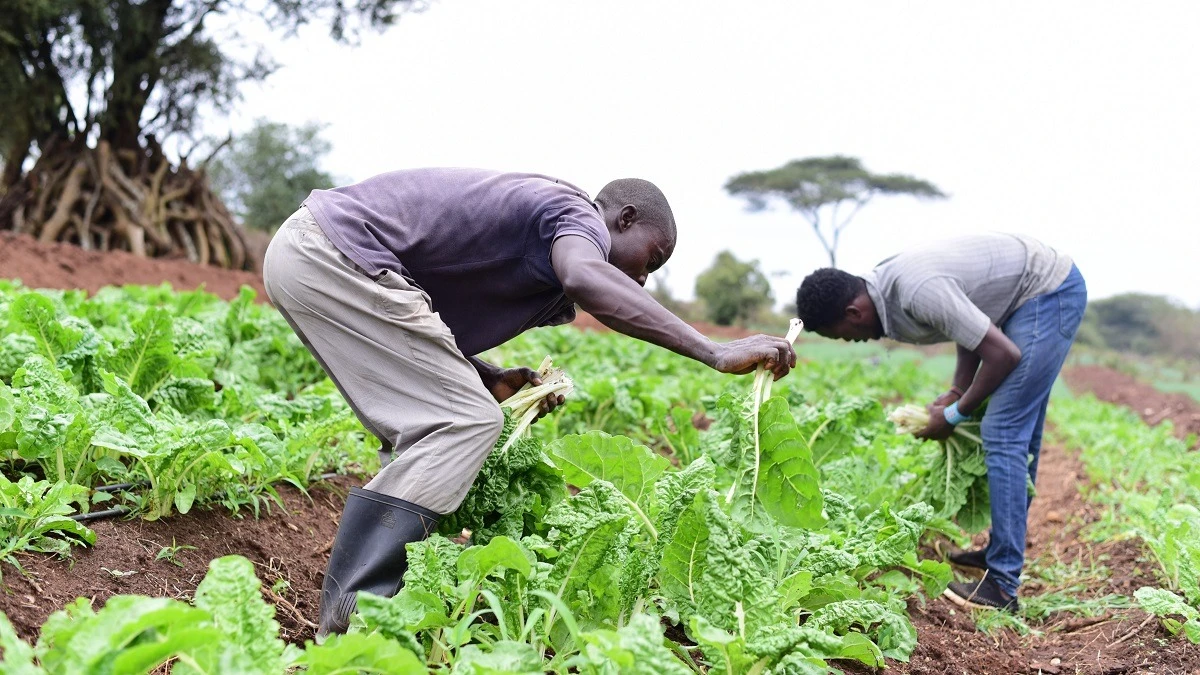Mitigating HWC: Chilli fence helping villagers in Tunduru District to keep elephants out of crops

IN many rural communities like Mbati village in Mbati ward, Tunduru District, Ruvuma Region which is located near the Selous-Niassa Wildlife Corridor that connects the Selous Game Reserve with Mozambique’s Niassa Reserve.
Villagers in Mbati have been clashing with the big animals for many years as wildlife visits villages near wildlife migratory routes in search of food. The Human-Wildlife-Conflict (HWC) challenge is not only in Tunduru District’s Mbati village, but across the country and the continent.
According to authorities, elephants are said to mostly invade villages in Mbati ward because villagers cultivate a lot of food and cash crops, thus attracting wildlife to eat the matured crops. The most cultivated crops include rice, peas, sesame, corn, cashewnuts and groundnuts.
“Recently, elephants invaded and destroyed two acres of my groundnuts and maize farm. The problem is getting serious each day; most incidences occur between January and July every year,” said Hamida Said, Chairman of Ruvuma Division.
Mohamed Magawa from Mbati village said the challenge is posing threat to both people and farms. He said there is no specific time for the unexpectedly invasions as elephants may cross between the farms at morning, afternoon and during night.
Magawa commended the German Development Agency (GIZ) through the German Government (BMZ) for coming up with the Mitigation of Human Wildlife Conflict in Tanzania project to help them combat elephants invasions into their farms, saying before such interventions they were spending the whole night in the cold near farms to guard their crops.
The project is implemented in the Ruvuma Landscape targeting rural populations in villages south of the Nyerere National Park and the Selous Game Reserve in the districts of Masasi in Mtwara Region, Namtumbo and Tunduru in Ruvuma Region.
“We are thankful to GIZ for assisting us to build a chili fence to protect our farms. The fence has proved efficiency as for the first time in several years we have been able to record bumper harvests. In building the fence, we fill up water bottles with chilli powder – a spice the elephants hate and hang them across our farms using a sisal rope,” he narrated, adding that sometimes they use sound as a means of distraction as well as beating loudly on steel buckets at intervals to scare the animals away.
Yassin Mkwanda is one of the three Village Game Scouts (VGS) in Mbati village who have just graduated from the Community Based Conservation Training Center (CBCTC)—Likuyu Sekamaganga in Namtumbo District, Ruvuma Region. He is planning to share the acquired knowledge with fellow villager but also assist them in chasing away elephants whenever they invade farms and human residences.
Construction of the chilli fence has reduced the challenge by 85 percent, he added.
“I am planning to educate villagers on the importance of the fence, but also, they should not go to the farms early morning to avoid crushing with elephants,” said Mkwanda as he appeals for the village government and donors to provide them with needed equipment.
Mbati Ward Executive Officer, Baslom Mnkondya said the village which was established in 1972 and officially registered in 1974 has a population of 3,575 people, of whom, 1,759 are male and 1,808 females as per statistics of the 2022 national housing and population census.
Mnkondya noted that the HWC is serious at the area whereas in the 2022/2023 financial year, between 85 and 100 people had their crops eaten and farms destructed by elephants. He said this year more than 150 have been destructed.
He said the problem is more serious in the Ruvuma, Mwinyi, Mbati ya Leo, Muungano, Mandeka and Nyasa divisions.
Mbati Ward Councillor, Rashid Swalehe appealed to the government to employ more wildlife officers as their number is small compared to the size of the district.
“We have only seven wildlife officers in our district; we are thankful to GIZ for sponsoring three VGS to undergo training on tackling HWC,” said Swalehe underscoring the need for education to the villagers so that they support efforts towards expanding and freeing up wildlife corridors, so the animals can roam more freely without encountering humans.
Bosco Mwingira, Acting Tunduru District Executive Director said the problem is more serious at the area as it borders Mozambique’s Niassa Reserve whereas elephants have been moving from one side to another.
Mwingira noted that farm invasion incidences are currently on the rise as most crops are matured, thus attracting the animals. He said the district which has 157 villages and 39 wards faces a shortage of wildlife officers.
“We call upon the central government to assign more wildlife officers to our district; we also appeal to donors and other organizations to support us with equipment to enable VGS to perform their duties accordingly,” he added, noting the district allocates 15m/- each financial year for procurement of various equipment used to scare and chase away elephants.
He said the district revenue collections have now increased to 5.6bn/- form the previous 4.8bn/- whereas most of the funds are directed on provision of social services.
Shafii Msuya is the Technical Advisor, Mitigation of Human Wildlife Conflict in Tunduru District, Ruvuma Region, he said they are working in 30 villages across the region whereas a number of activities have been done whereas through the Training of Trainers (ToT), a total of 59 people have been trained on HWC mitigation methods such as smelly repellent, beehives and metal strips fences.
He added that in 24 villages, 1304 farmers have been trained on the methods, adding more than 27 kilometers of smelly repellent fences have been installed, thus protecting more than 1300 acres of crops.
“With the fences we have largely managed to reduce the rate of elephant intrusion attempts. We empower communities to reduce the negative impacts of HWC on their livelihoods and security,” remarked Msuya.
Top Headlines
© 2024 IPPMEDIA.COM. ALL RIGHTS RESERVED

























